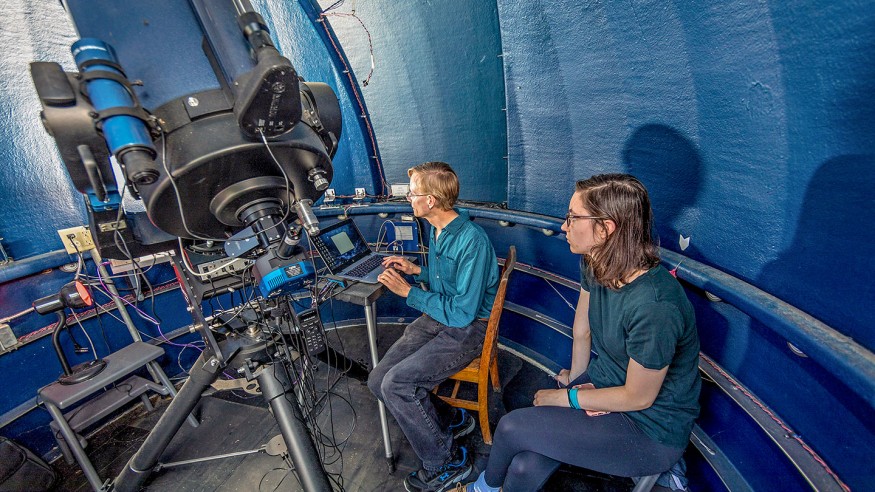
2018 Summer Science Research Program
Ohio Wesleyan Students Complete Original Research with Faculty Mentors
From songbird communication to atomic nuclei, this summer was one for the books – and the microscopes, petri dishes, and pipettes – for Ohio Wesleyan students participating in the University’s annual Summer Science Research Program.
Over the course of 10 weeks, 21 OWU students participated in this year’s program, working side by side with faculty mentors from May to July to conduct original research both on and off campus. Seven students from other institutions across the nation traveled to Ohio Wesleyan to participate in the prestigious program as well.
Students will discuss and present their findings during the annual Patricia Belt Conrades Summer Science Research Symposium at noon Sept. 24 in the atrium of Schimmel/Conrades Science Center.
Meet some of this year’s SSRP participants and read about their Summer Science Research Program (SSRP) experiences.
Investigating Neuronal Development

Landry Cowles ’19 of Louisville, Ohio; Benjamin Arnold ’20 of Tiffin, Ohio; and Maddie Meyer ’20 of Marion, Massachusetts, researched “The Role of miRNA-7 in Neuronal Development” with faculty mentor Suren Ambegaokar, assistant professor of neuroscience and microbiology. Ambegaokar’s research involves neurodegenerative disorders, infectious diseases of the nervous system, and the intersection of the two.
“It has been eye-opening to see the knowledge from my previous courses come together and actually observe the interplay of chemistry, biology, and neuroscience,” says Cowles, a pre-medicine and molecular neuroscience double major and Spanish minor.
Arnold, a neuroscience and pre-medicine double major and chemistry and psychology double minor, says, “Because the research we are doing is extremely applicable to the medical field, it has led to a lot of thoughtful conversation and reading of scientific articles related to the origin and possible treatment of different brain cancers.”
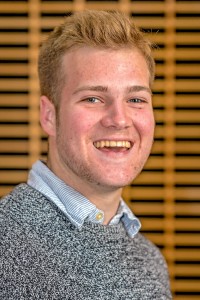
Arnold says his research has led him to heavily consider pursuing a Ph.D. through a joint program at a medical school that would allow him to not only practice medicine, but also conduct his own research.
Meyer, a neuroscience and biochemistry double major, says a major lesson she learned from Dr. Ambegaokar is the importance of communication.
“This is true within a single lab group,” she says, “but it’s also encouraging to see that researchers all over the nation and world will make time to share information with other researchers who they have never met, and everyone is only one phone call or email away.”
After graduation, Meyer hopes to attend graduate school while both Cowles and Arnold plan to attend medical school.
Why did these three student-scientists choose OWU?
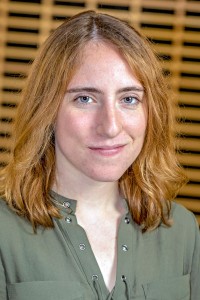
Cowles says, “I chose OWU because I wanted a smaller campus, and it had an established neuroscience department.”
Arnold says, “Because of my mother’s career in higher education, I knew I wanted to attend a private, liberal arts school that offered a neuroscience program. Like most other OWU students, upon my initial visit, I fell in love with the Delaware area, academic opportunities, and beautiful campus. The connections I’ve made since – both with peers and faculty members – have made my first two years at Ohio Wesleyan the best of my life so far!”
And Meyer adds, “Professors were very helpful and welcoming when I visited campus – even those outside my majors were happy to help and show me around campus.”
Studying Invasive Species
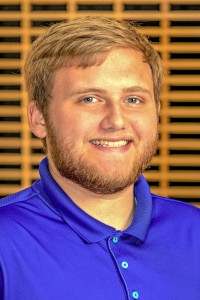
Aidan Shumaker ’20 conducted a study on the “Impacts of Invasive Species on Ecological Processes in the Kraus and Bohannan Nature Preserves.” Shumaker, a microbiology major and computer science and data analytics double minor from Loveland, Ohio, conducted his research under the mentorship of Laurie Anderson, professor of botany-microbiology.
“Working with Dr. Anderson has shown me what it is really like to think in a practical sense in field and laboratory work, including all the processes of how to start a project, obtain funding, and planning out how to perform the tasks that will provide answers,” he says.
After graduation, Shumaker hopes either to attend graduate school or work with microbiological interactions for an agricultural or medical company.
Why did he choose OWU?
“I chose OWU because of the Patricia Belt Conrades Summer Science Research Symposium,” Shumaker says. “I was motivated by hearing students talk about their experiences, opportunities, and connections gained from their experiences.”
Exploring Video Game Exposure
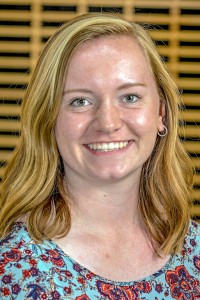
Mickey Rice ’20 of Louisville, Kentucky, and Lexi Lease ’20 of Toledo, Ohio, concentrated research on “The Effects of Video Game Exposure on Cognitive Control.” Rice and Lease, both psychology and neuroscience double majors, worked under the guidance of Kira Bailey, assistant professor of psychology.
“I have taken multiple classes at OWU that have discussed research methods, how research has been impactful in the scientific community, and the significance of a well-executed study,” Rice says. “My experience with SSRP has allowed me to put this knowledge into action, as well as learn all of the intricacies and nuances required to conduct a study with human participants.”
Rice says the process of creating ideas to carrying out an authentic scientific study has sparked her interest in pursuing experimental psychology or clinical neuropsychology in graduate school, an ambition shared by Lease.
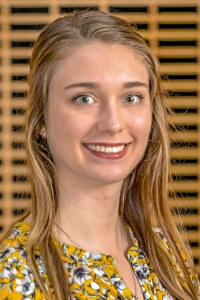
During spring semester, Lease took cognitive neuroscience taught by Bailey. There, she learned the foundations of the biological processes underlying our thoughts and this summer’s research heavily built on concepts gained from the class.
“Experiences like the SSRP matter because they allow students to transition what they have learned in the classroom to actual concrete practice,” Lease says.
Why did these student-researchers choose to attend OWU?
Rice says, “I chose OWU because I loved the layout of the campus and the city of Delaware. I was also very interested in OWU’s neuroscience program and was impressed by the all the faculty members I met. I knew I wanted a close relationship with my professors and advisors, and OWU has provided me with that opportunity countless times.”
And Lease adds, “I was impressed by their neuroscience program. I also wanted an opportunity to be mentored by a professor. I knew that with a smaller school, my chances of getting a mentor would be higher, and SSRP has given me that experience this summer.”
Undertaking a Salty Experiment
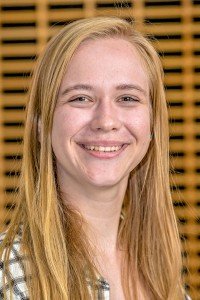
Becca Porter ’20, an English and zoology double major from Washington Grove, Maryland, and Katie Vonderembse ’19, an environmental science major and classics minor from Toledo, Ohio, conducted “The Global Salt Experiment.” They explored how freshwater ecological communities interact internally and environmentally under the mentorship of Amy Downing, professor of zoology.
“I’m able to see for myself the ways that human-caused threats, like runoff, can disrupt entire ecosystems and drastically change their composition and viability,” Porter says.
Porter plans a career in marine conservation ecology and says this summer’s experience introduced her to techniques and equipment valuable for her future career.
Vonderembse says, “Dr. Downing has taught us that large experiments, like the one we are undergoing, can be tedious, but also rewarding. Hot or rainy days in the field or long days at the microscope pay off when interesting findings pop up during the process.”
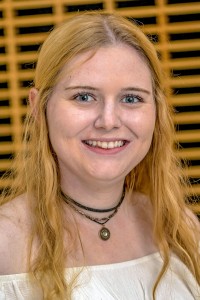
After graduation, Vonderembse plans to pursue an advanced degree in ecology or environmental science, while Porter says she wants to work for a few years before enrolling in graduate school.
Why did these student-scientists select OWU?
Porter says, “OWU fit my needs as a liberal arts institution with small, often discussion-based classes, and lots of opportunity for research and travel.”
And Vonderembse adds, “I wanted to attend a small college that would challenge me academically. I am glad I did choose OWU because I have had so many great opportunities, like SSRP, that I do not think would have been the same at another school.”
Examining Artificial Intelligence
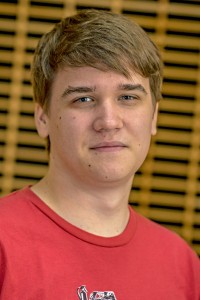
Eugene Kramskoi ’19, a computer science major from Lewis Center, Ohio, researched “Artificial Intelligence for Modern Board Games” under the mentorship of Sean McCulloch, professor of math and computer science.
“With this project, I’m having to combine a lot of the different knowledge of algorithms and programming I’ve learned into one large independent program,” he says. “This is a great learning opportunity since this kind of holistic project is usually not possible in a normal class setting.”
Kramskoi plans to find a career in software development once he graduates.
Why did he choose OWU?
“The main reason I chose Ohio Wesleyan is for the small classes and the chance to get to know my professors,” Kramskoi says. “My relationship with my professors is actually what led me to this research in the first place.”
Studying Health and House Wrens
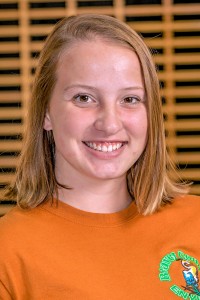
Cailynne Angelo ’20, a pre-professional zoology and sociology/anthropology double major with a chemistry minor, studied the “Stress Response and Immune Function in Female House Wrens.” Joe Brush ’20, a pre-professional zoology major, concentrated on the “Social Modulation of Testosterone and Corticosterone in Two Species of North American Wren.” Both students worked under the guidance of Dustin Reichard, assistant professor of zoology.
Angelo, from Monaca, Pennsylvania, says the skills she has gained, including laboratory techniques and procedure, are helping her to prepare for the future.
“[This experience] has given me the opportunity to enjoy what I am doing in order to pursue my goals,” she says. “It has reminded me that, while end goals are important, so is stopping to take in more of the experiences that are meant to prepare you for it.”
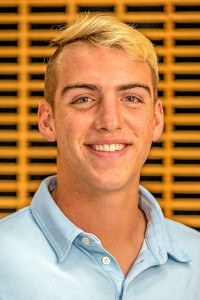
Brush, from Lawrenceburg, Indiana, says, “I want to work with different types of animals in the future, so getting to handle birds every day this summer and learning more about them is going to be a huge asset moving forward. This experience is invaluable in that I have gained insight into the ways in which we go about understanding phenomena in the natural world, a process I definitely took for granted while learning out of a textbook.”
After graduation, Angelo hopes to study healthcare in graduate school, while Brush plans to focus on mixed animal medicine in veterinary school.
Why did these future healers choose OWU?
Angelo says, “I chose Ohio Wesleyan because of the opportunities it provided for world travel and valuable experiences through study abroad, travel-learning courses, and grant programs.”
Brush concludes, “I chose Ohio Wesleyan because it had everything I wanted in a school: a strong zoology program and a great soccer team. The small class sizes make being successful in academics possible for anyone, and the opportunities to get involved on campus are extensive.”
Learn more about Ohio Wesleyan’s Summer Science Research Program at www.owu.edu/ssrp.
